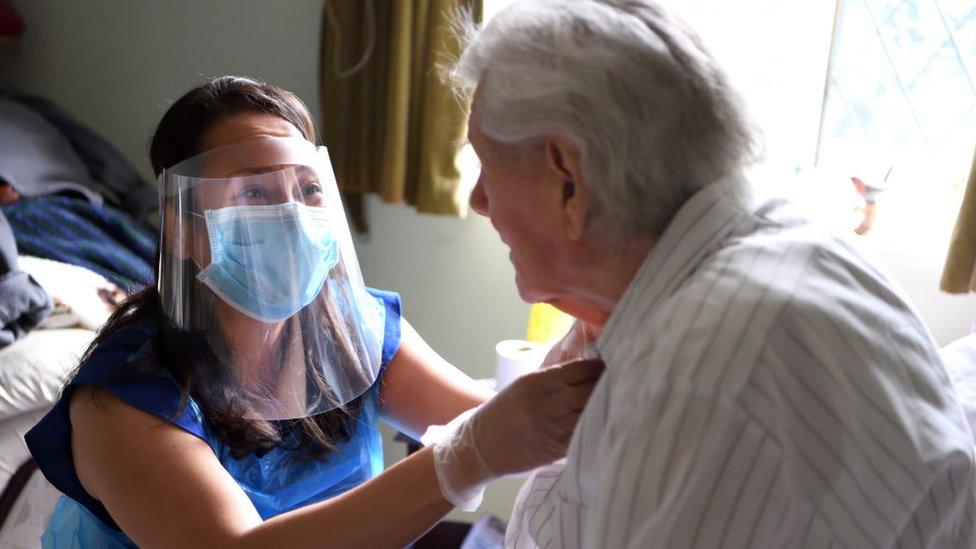Covid-19: London care home staff share concerns over vaccine
- Published
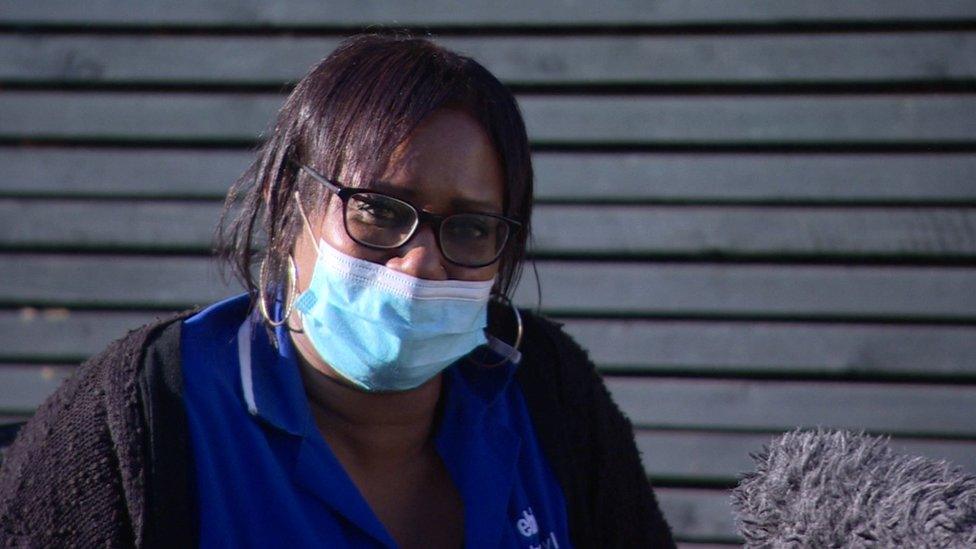
Care worker Cheryl: "I'm still thinking about it. I hear different stories"
"It's because I don't know about the side effects. It hasn't been out long."
Cheryl, from Enfield in north London, is one of a number of care home workers hesitant to receive the Covid-19 vaccine.
She contracted coronavirus during the first wave of the pandemic, but did not know until she had a recent antibody test.
Almost all of the residents she cares for have had their first round of the Covid-19 vaccine, but she feels unsure about getting it herself.
"I'm not sure. I know I should, and I'm thinking about it," she said.
"[I'm worried about] the side effects, it hasn't been out long - those things worry me. I hear different stories."
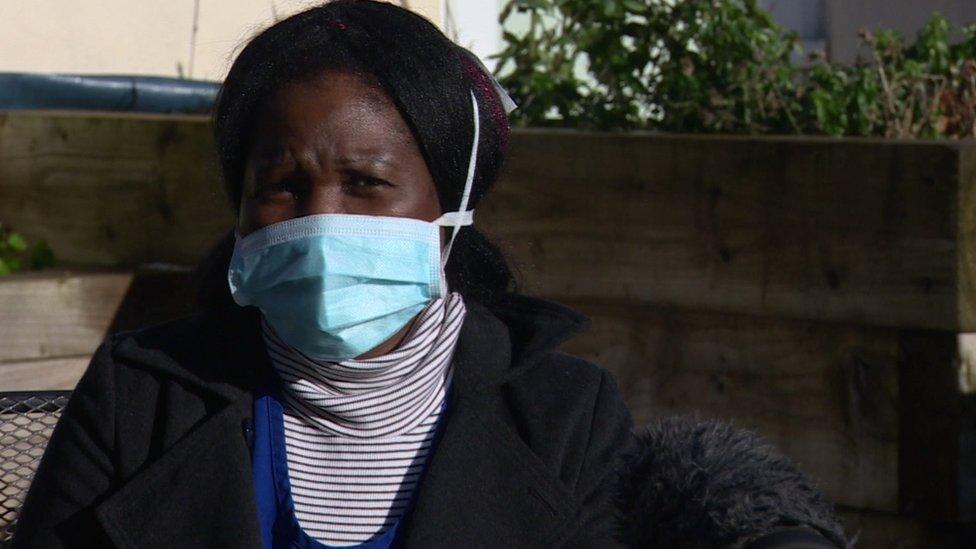
Respina: "I want to wait a bit and see how it goes with other people"
Respina shares these concerns. She worries the vaccine could make her sick like the flu jab did.
"I don't know much about it. I just want to wait a bit and see how it goes with other people," she said.
"I'm just thinking about those who really need the vaccine to protect themselves. I can be the last one, I don't mind."
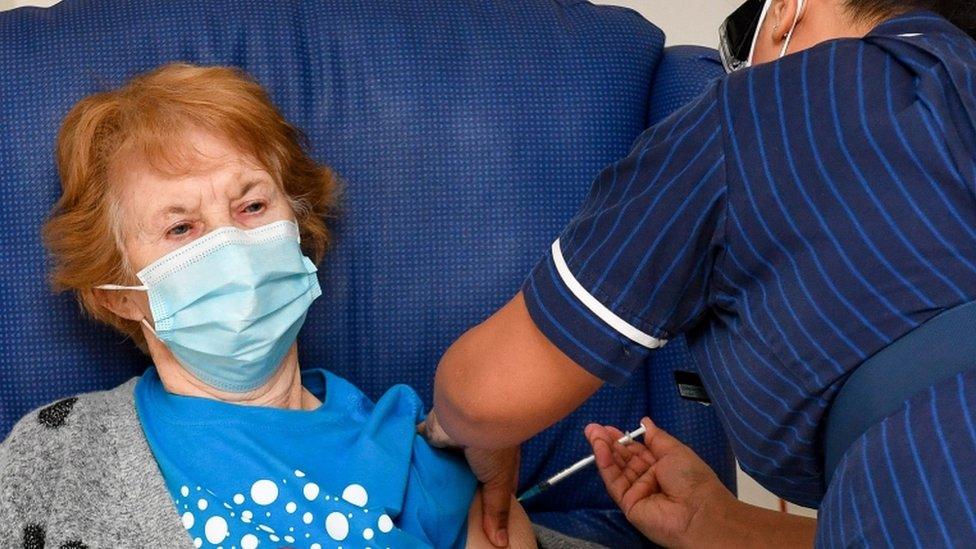
Margaret Keenan, aged 90, became the first person vaccinated in the mass rollout by the NHS
"Having vaccine hesitancy is entirely normal," says Dr Zubaida Haque from Independent Sage, a group that provides scientific advice to the public and government.
"It is normal to have legitimate concerns, fears, anxieties about a vaccine that's been rolled out quite quickly.
"But it is actually very safe, otherwise it wouldn't have been authorised by the regulatory bodies.
"We need the government to roll out a public awareness campaign, like the "Stay at Home" one, to show that this vaccine is the safest and most effective way of getting us out of this pandemic, and to answer people's legitimate concerns."
More than 7.1 million people in the UK have had at least one dose of a vaccine to protect against Covid-19.
Two vaccines - developed by Pfizer-BioNTech and Oxford-AstraZeneca - are being used. A third, from Moderna, has been approved.
All have been shown to be safe and effective in trials. Two doses are needed to offer the best protection and these will now be 12 weeks apart.
The leader of Enfield Council, Nesil Caliskan, said she was not surprised people were hesitant to have the vaccine, particularly among ethnic minority workers.
"Care homes in Enfield were really badly hit during the first wave of the pandemic. The staff are heavily represented by BAME communities in London, and it has been difficult to get the messaging out," she said.
The council was now starting to target its messages to some of the most affected communities in the area, she added.

Barking and Dagenham Council, which has some of the highest virus rates in the country, said it had also seen a slow uptake of the vaccine - with only 25% of its residential home and nursing staff having received their first dose.
National Care Association's chair Nadra Ahmed said "a transmission of fear" could easily spread among staff working in care homes.
"You only need one or two people in a care home to show doubts, and it can escalate," she said.
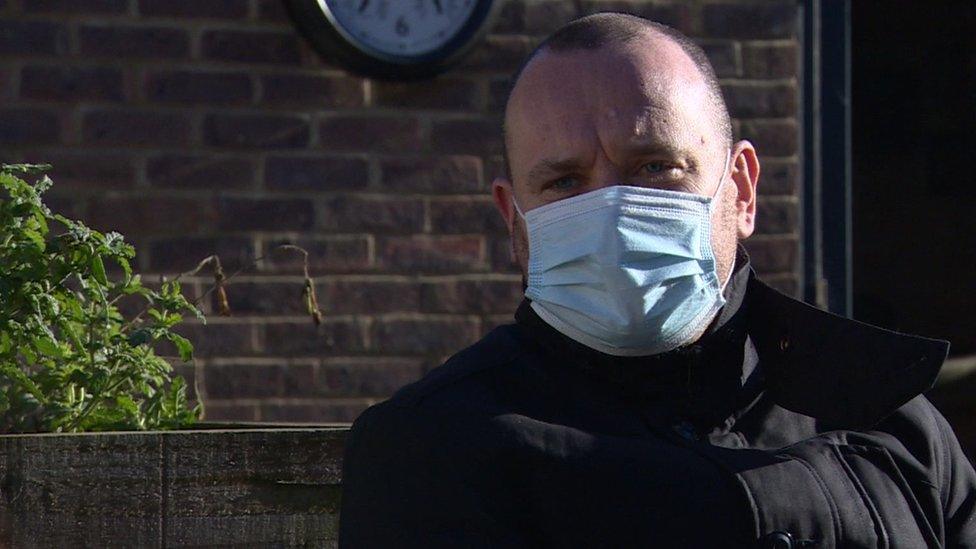
Care home manager Jonathan Beacham: "Only a third of our care home workers are vaccinated"
Enfield care home manager Jonathan Beacham said he was disappointed that so few of his staff have had the vaccine but understands it is their decision.
"I can only try and persuade and encourage them. We are obviously concerned. We don't want the virus to make its way back into the care home."
He said he would consider compulsory vaccinations in the future.
"We haven't changed the policy yet, but we will look closely at making the vaccinations compulsory, possibly for new staff going forward."
- Published2 April

- Published28 January 2021
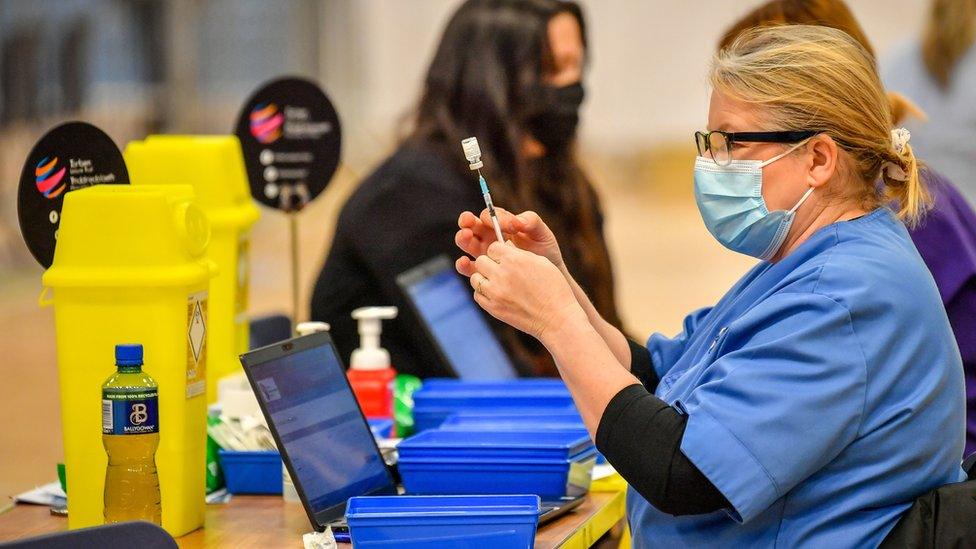
- Published25 January 2021
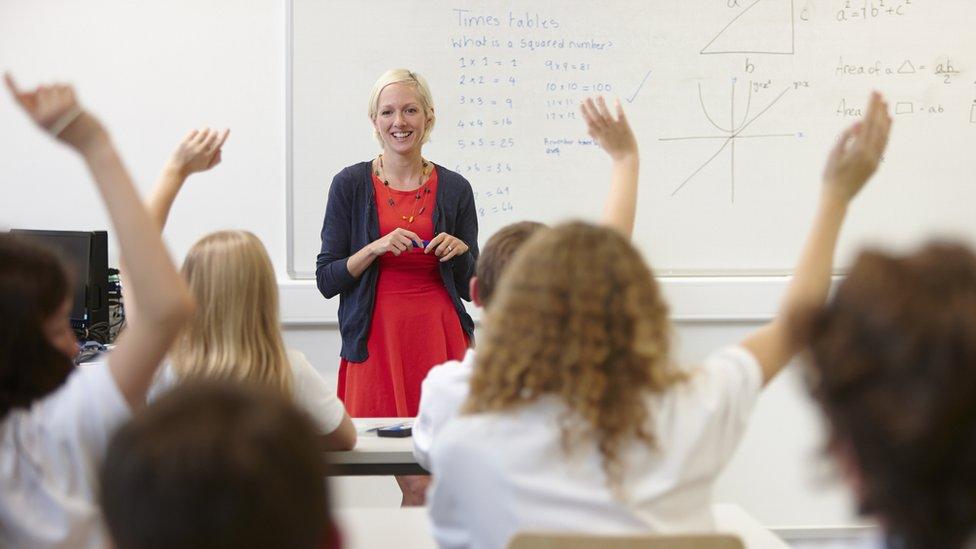
- Published20 January 2021
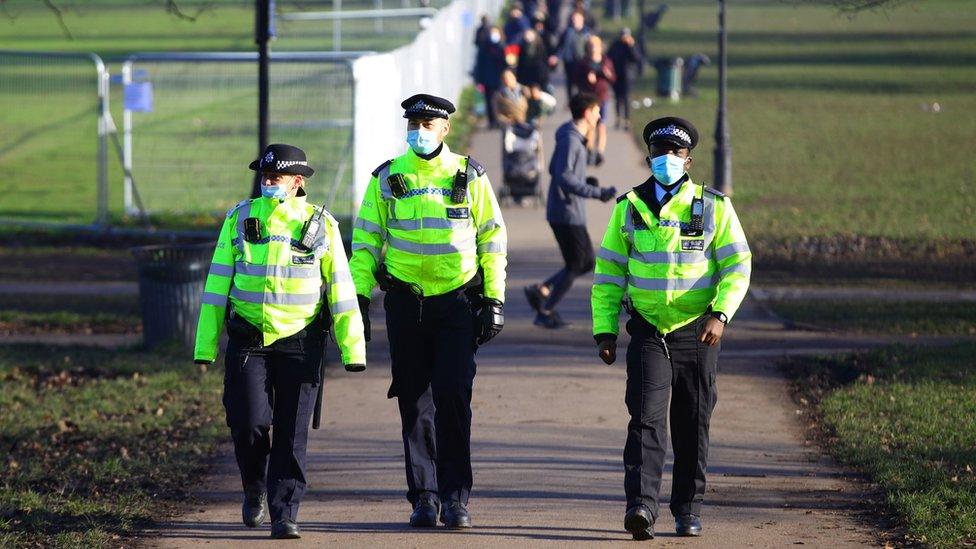
- Published5 November 2020
